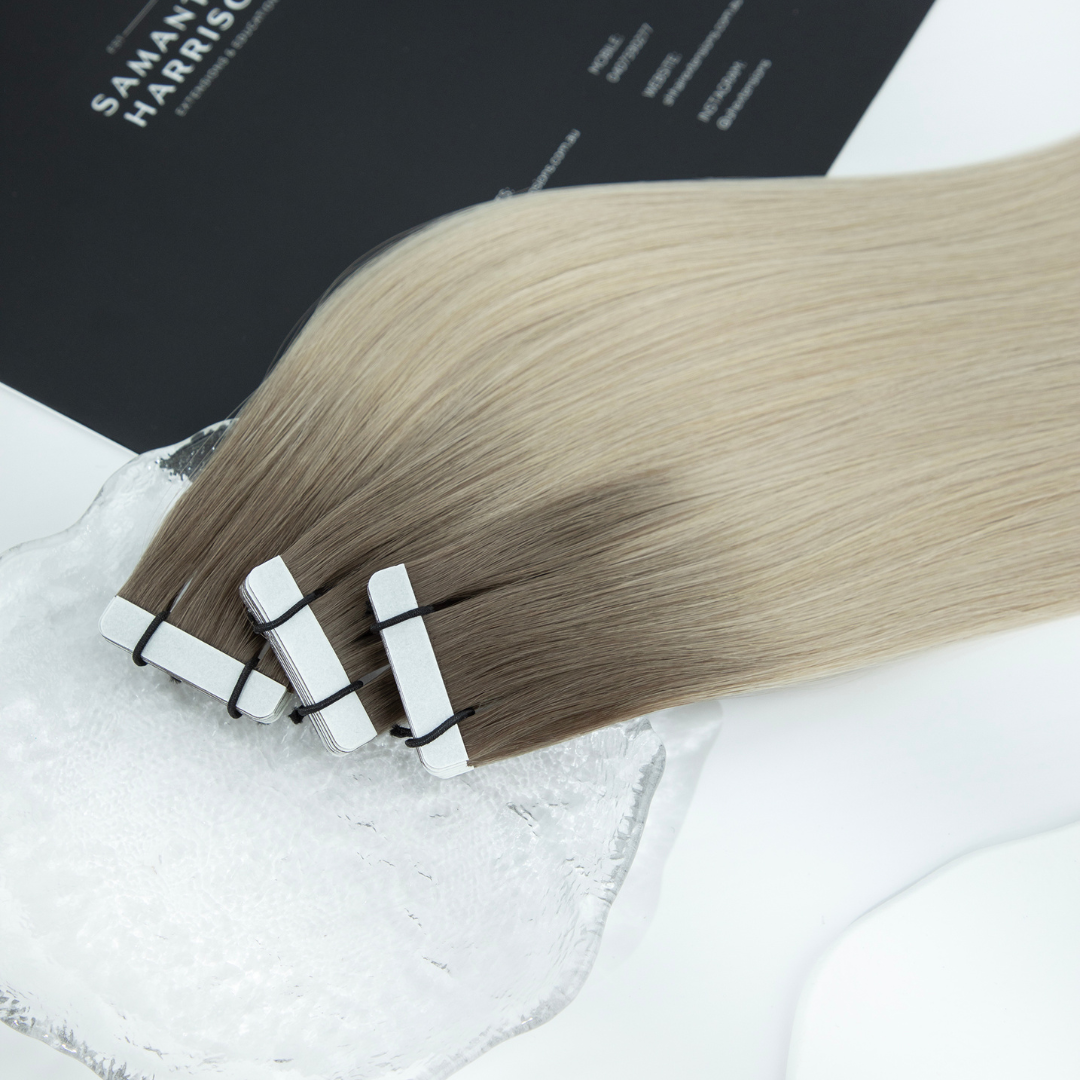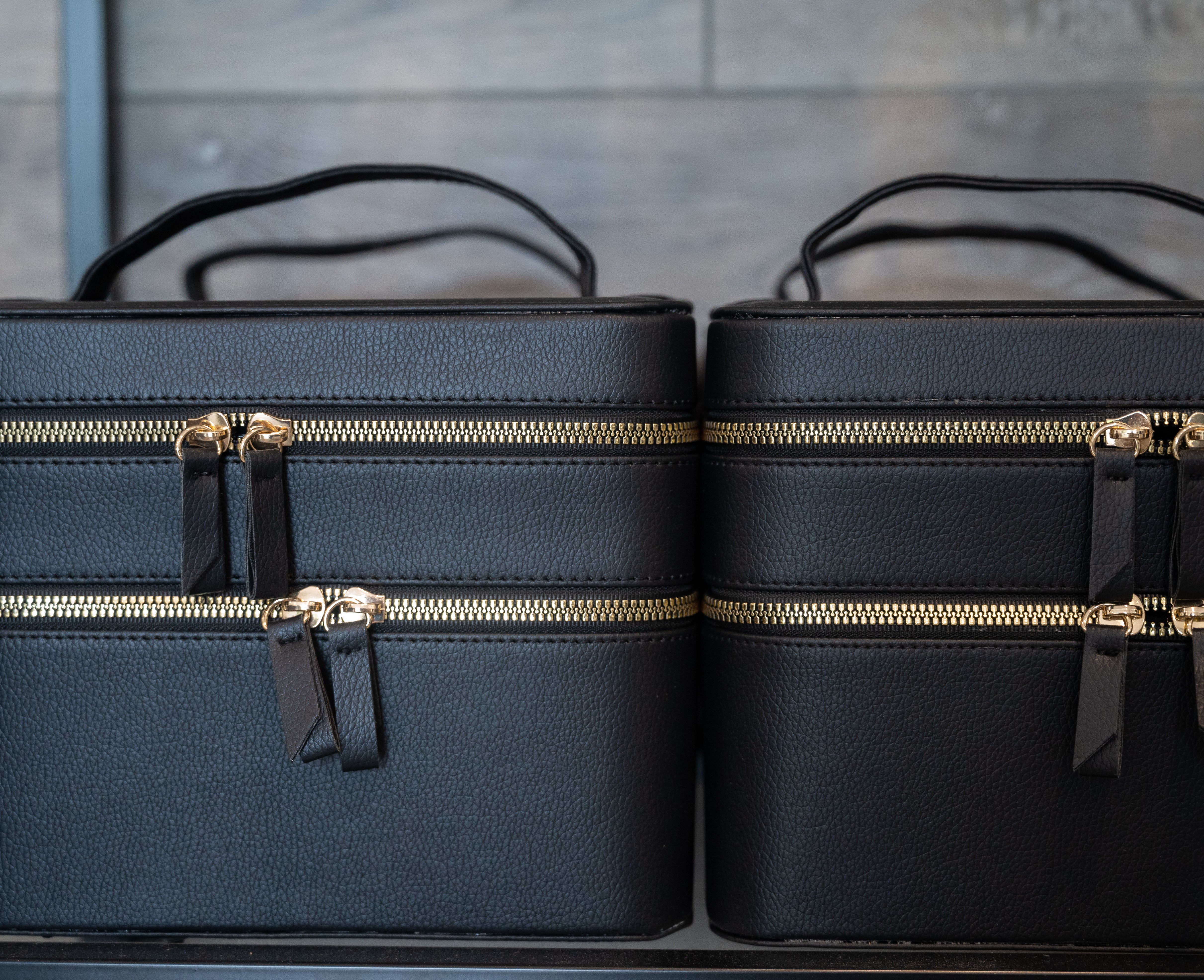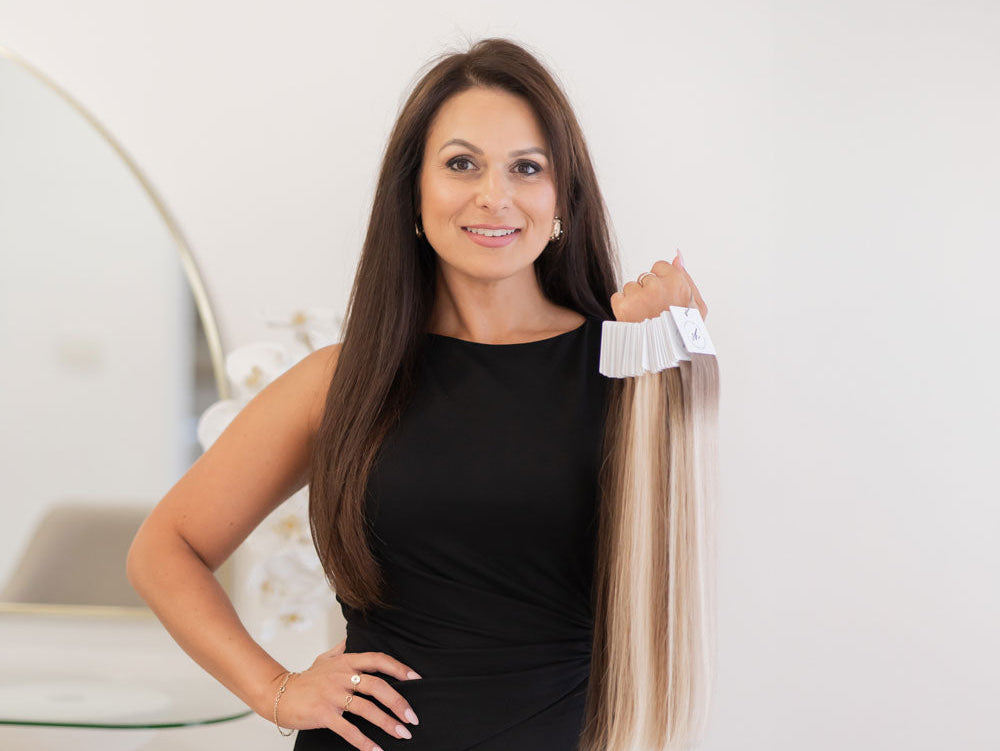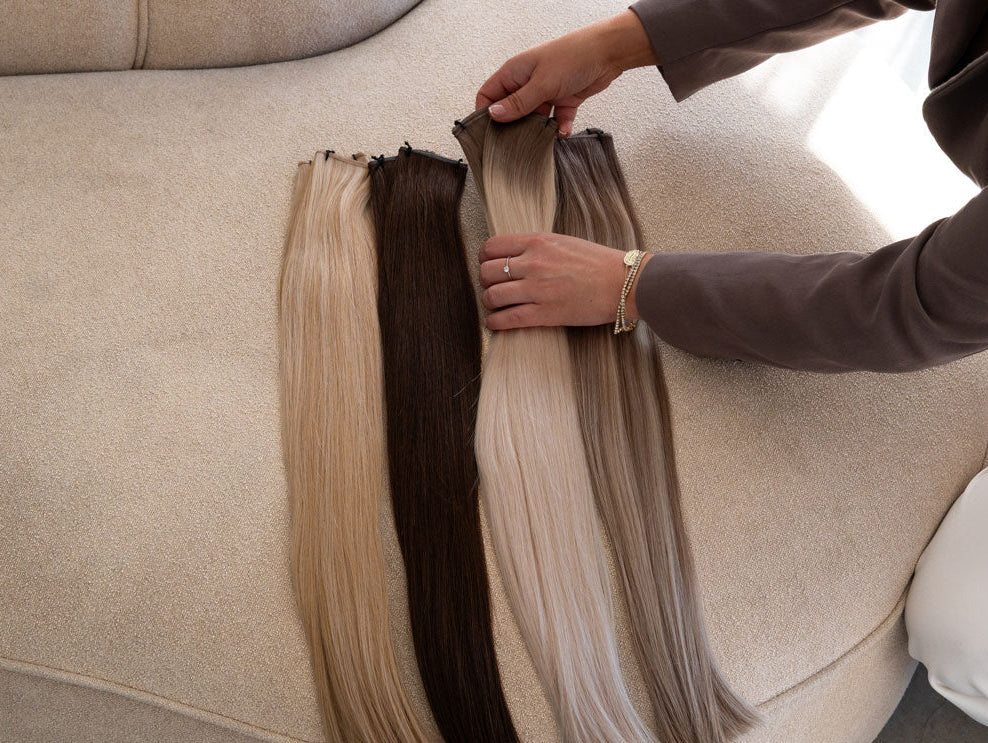HAIR EXTENSION EDUCATION & TIPS

When it comes to caring for your hair extensions, there’s one question that often arises: Why can’t I use keratin or protein treatments on my extensions? While protein and keratin might be essential for your natural hair, they can do more harm than good for extensions. Here’s why:
1. Protein Overload = Brittle, Stiff Extensions
Hair extensions don’t receive the natural oils from your scalp, which means they’re already more prone to dryness. Adding keratin or protein repeatedly can lead to protein overload, resulting in stiff, dry, and brittle extensions that break easily.
Unlike natural hair, extensions can’t regulate their own protein-moisture balance, so applying too much protein can make them feel hard and rough to the touch.
2. Loss of Softness & Flexibility
Extensions go through chemical processing, which removes a lot of their original cuticle. When you apply protein treatments excessively, it can make them lose their softness, flexibility, and natural movement. Instead of having silky, flowy locks, your extensions might feel more like straw.
3. Increased Tangles & Matting
Excess protein makes extensions less smooth, which increases the chances of tangles, knots, and matting. This is especially true for lower-quality extensions that have already been over-processed before being sold. If your extensions are becoming a tangled mess, it’s a sign that too much protein is at play.
4. Shorter Lifespan
Overusing keratin or protein treatments on extensions can leave them dry and prone to breakage, significantly reducing their lifespan. Once extensions become brittle, there's no fixing them... unlike natural hair, extensions don’t have the ability to regenerate and repair themselves.
5. Issues with Bonded Extensions
If you're wearing keratin bond extensions (like fusion extensions), adding additional keratin treatments can damage the bonds. Excess keratin can make the bonds harder and more fragile, leading to premature shedding and the bonds breaking down faster. This will affect both the hold and the longevity of your extensions.
6. Colour Fading or Uneven Toning
Most hair extensions are chemically coloured to match natural hair shades. Protein-heavy treatments can cause the colour to fade or result in uneven toning, especially for blonde or treated extensions. If you’ve invested in premium extensions, you want to preserve that beautiful colour for as long as possible...too much protein will work against that.
How to Care for Your Extensions Without Protein Overload:
Now that you know why protein and keratin treatments are a no-go for your extensions, here’s how you can keep them soft, smooth, and long-lasting:
-
Skip Protein-Based Products: Don’t use protein-rich shampoos, conditioners, or treatments on your extensions. Focus on hydration instead. We've bundled our favourite products here: Our hair care package.
-
Focus on hydration rather than protein. Use moisture-rich masks, oils, and lightweight conditioners to keep your extensions soft and hydrated. We recommend the Muk Ultra Soft Range for a gentle, nourishing approach.
-
Avoid Keratin Shampoos: If you’re wearing keratin bond extensions, avoid shampoos that contain keratin to protect the bonds from breaking down prematurely.
-
Use leave-in treatments sparingly and avoid protein-based sprays or serums.











